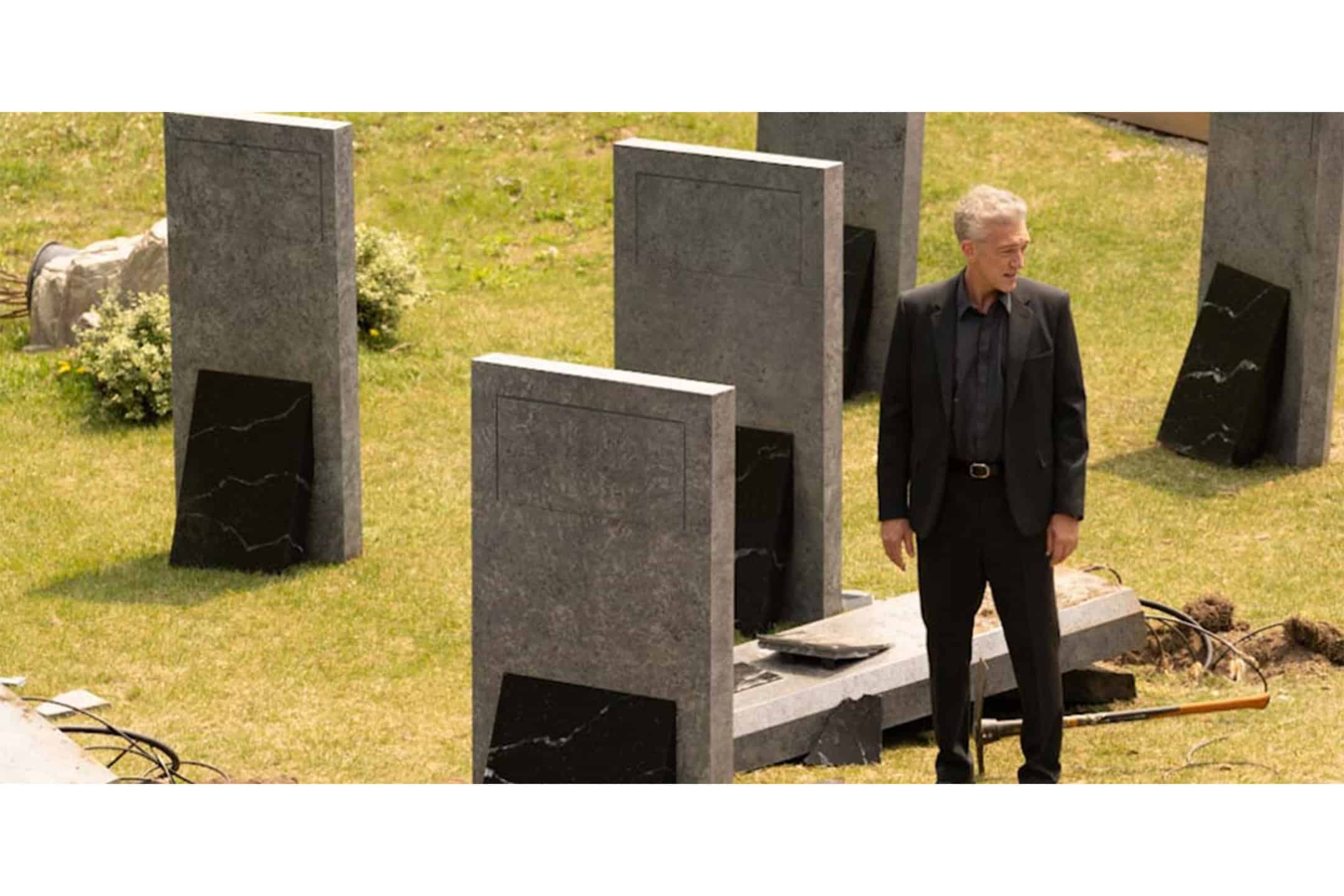“Grief is rotting your teeth.” From the very first line of The Shrouds, its message is clear. The latest from body horror pioneer David Cronenberg is a visceral meditation on how grief invades the flesh and how technology, in turn, invades the grieving process. The film follows businessman Karsh (Vincent Cassel), who, in mourning the death of his wife Becca (Diane Kruger), establishes GraveTech: a company that enables mourners to watch their loved ones’ corpses decompose in real-time.
Anyone who has seen the director will recognize him in Karsh. What begins as an exhumation of Cronenberg’s grief after losing his wife Carolyn to cancer quickly metastasizes. As Karsh grows increasingly paranoid about tumorous growths appearing on Becca’s decaying skeleton, Cronenberg puppeteers him through a labyrinthine technothriller involving international politics and artificial intelligence.
The paranoid tangle of half-explored conspiracies, however, only distracts from the true emotional heart of the movie, which lies in Karsh’s inability to part from his deceased wife. In an early scene, he reflects on how the soul haplessly hovers over the body after death, having only experienced the world through its eyes. When Karsh later says, “I lived in Becca’s body, it was the only place I really lived, it was the world,” it becomes clear that Cronenberg’s vision of grief involves the separation of lovers’ souls from their loved ones’ bodies.
Cronenberg previously explored this theme in his 2021 short film The Death of David Cronenberg: another elegy to Carolyn where the director climbs into bed with his own corpse. During the post-screening Q&A for The Shrouds, he explained that losing one’s partner differs from losing a parent because lovemaking with a partner uniquely recontextualizes one’s understanding of their body. Through this lens, the loss of a loved one is akin to the mutilation of the surviving lover.
Karsh’s dialogue throughout the film is steeped with romantic viscera, reflecting Cronenberg’s fascination with embodiment. He drowns in the “fluid of grief,” aches to climb into Becca’s grave, and even dons a GraveTech Shroud to simulate how his own corpse might decay. A brief moment of particular necrophiliac depravity sees him discussing the possibility of haptic integration into the Shroud — enabling not just visual, but tactile interaction with the corpse.
In denying Becca her privacy in death, Karsh grapples with a recurring theme in Cronenberg’s works: the idea that “body is reality,” as seen in his 2022 film Crimes of the Future. As Cronenberg noted after the film, the belief that the body is the sole mediator of life entails that death is both final and absolute. Karsh’s rebellion against this finality is manifested through GraveTech, which interposes screens between the living and the dead to mediate and extend grief — thus denying the corpse its right to an ending.
A tremendous monument to grief in Cronenberg’s trademark language of transmutation and decay, The Shrouds meditates on the grasping desire to possess what can never be yours again. As Cronenberg wryly noted before bidding his rapt audience goodbye, “cinema is a cemetery.”



No comments to display.